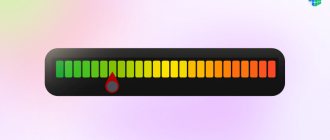Often a depressed mood is accompanied by feelings such as unexplained anxiety and despondency. Some patients feel these feelings physically, like a bodily discomfort. Overt depression is characterized by three main signs: deterioration of the emotional state, slowing of the thought process and slowness of motor skills.
In the modern world, depression occupies a special place among mental disorders. In terms of frequency of cases, it has no equal
– one in ten people over 40 years of age is susceptible to this disease. Depressive symptoms are twice as common in women as in men, and after age 65, the incidence triples. In childhood and adolescence (10–16 years), depression is observed in 5% of cases, and overall data on the prevalence of depression in young adults reaches 40%. Of undoubted concern is the fact that it is in adolescence that various manifestations of mental disorder lead to suicide.
What is depression?
When doctors talk about depression, they are talking about a condition called major depression. Patients with major depression experience the following symptoms all day long, almost every day for at least 2 weeks in a row.
If you have depression, you may also have headaches, pain in other parts of your body, or problems with digestion or sex life. An older person with depression may have difficulty understanding simple messages or requests made to them.
Symptoms of depression:
- lack of interest in activities that were previously enjoyable.
- Feeling sad or empty.
- Tearfulness, causeless crying.
- A feeling of inhibition or, conversely, a feeling of restlessness and the inability to sit in one place.
- Feelings of worthlessness or guilt.
- Rapid weight gain or loss.
- Thoughts about death or suicide.
- Difficulty thinking, remembering, or concentrating on current activities.
- Difficulty making everyday decisions.
- Trouble sleeping, especially in the early morning hours or feeling sleepy throughout the day.
- Constant feeling of fatigue.
- Feelings of emotional numbness, sometimes to the point of being completely unable to cry.
What are the dangers of severe depression?
- Behavior changes. From simply avoiding their usual activities to changing their lifestyle, people with depression end up in sects and extremist organizations. From stopping self-care to attempting suicide.
- Loss of usual social connections: dismissal from work, family breakdown, loss of friends. What has formed around a person over the course of life, forming his environment, is destroyed by severe depression.
- General exhaustion: dystrophy, weight loss, metabolic disorders.
- The development of psychosomatic diseases: cachexia (weight loss), skin rashes, asthma attacks, gastrointestinal disorders (constipation, diarrhea), temperature regulation disorders, excessive sweating, hypotension or hypertension and many other disorders.
What causes depression?
In all likelihood, the development of depression is associated with a violation of chemical metabolism in the brain, which in turn causes a deterioration in the communication of brain cells with each other. There is also a genetic predisposition to the development of depression. Depression can be associated with certain events in your life, such as the death of a loved one, divorce or job loss. Taking certain types of medications, abusing alcohol or drugs, or having an underlying medical condition can also lead to depression. Depression is NOT a result of weakness of character, laziness or lack of willpower.
Causes of depression
Experts attribute symptoms of depression to environmental factors and genetic predisposition. However, they invariably indicate the impossibility of accurately identifying the cause of the disease. Official medicine recognizes a hereditary trace in more than half of diagnosed cases: in first-degree relatives, identical twins. According to popular theories, the development of a depressive state can be affected by malfunctions of the hypothalamus, pituitary gland or adrenal glands, which produce hormones important for humans. Disturbances in the interaction of these organs can cause prolonged depressive states.
A significant role in the appearance of signs of major or chronic depression is played by the psycho-emotional state, disturbed as a result of experienced problems: divorce, loss of a loved one, financial losses. In the absence of a predisposition to severe mental disorders, these events do not cause prolonged depressive states. If the patient has a tendency to anxiety, the risk of dangerous symptoms increases.
Speaking about women's predisposition to depression, experts point to the following reasons:
- exposure to daily stress due to high mental stress;
- high risk of thyroid dysfunction;
- hormonal changes associated with the menstrual cycle or menopause;
- an increase in the level of monoamine oxidase, an enzyme that promotes the destruction of neurotransmitters that determine the patient’s mood level.
Against the background of clinical depression, the patient may experience signs of somatic diseases: hormonal disorders, brain tumors, strokes, multiple sclerosis and Parkinson's disease.
How can depression be diagnosed?
If you have symptoms of depression, be sure to tell your doctor about it, this is the only way you can get effective help. Don't think your doctor can tell you're depressed based on your appearance. The sooner you seek help, the faster you will get rid of depression.
If you tell your doctor how you are feeling, he or she may ask some clarifying questions about your symptoms, your health, and your family's medical history. Your doctor may also order some tests and perform a general examination.
Main clinical manifestations.
Without delving into the clinical picture of each specific type of depression, there are three groups of leading symptoms known to psychiatrists as the “depressive triad.”
- Decreased mood. Plays a leading role in the clinical picture of prolonged depression. As a symptom, it is heterogeneous and in its structure there are certain dominant manifestations, such as: the inability to receive satisfaction and experience joy, decreased self-esteem, and disappearance of the feeling of satiety with sleep.
- Thinking disorder. It consists of a kind of gloomy assessment of reality, a slower pace of thinking, depressive thoughts and statements.
- Decreased physical activity. Leads to the characteristic lethargy of patients; patients develop a specific shuffling gait with their head down, and deep sighs full of anguish and suffering are often heard. In this case, speech becomes very quiet, without emotional coloring.
How is depression treated?
Depression is treated with medication or a special type of counseling called psychotherapy. Sometimes these methods are combined.
What about drug therapy?
Several types of medications can be used to treat depression. These drugs are called antidepressants, and they have proven themselves very well. These drugs correct the chemical imbalance in brain cells that leads to depression.
Antidepressants work differently for different people. Each of them also has its own side effects. Therefore, if one of the antidepressants is not suitable for you or is not effective enough, it is quite possible that another drug from this group will help you. Improvement may occur after 1 week of treatment with an antidepressant, but the full effect is usually achieved after 6 to 8 weeks of treatment. Side effects usually occur at the beginning of treatment, but usually go away after a few weeks.
How long should I take the medications?
The length of treatment depends on the type of depression you have. Your doctor will likely prescribe you a course of therapy lasting 4 to 6 months or more. The duration of treatment should be sufficient to reduce the risk of relapse of depression. Be sure to discuss all aspects of your drug treatment with your doctor.
Diagnosis and treatment of depression
—
To identify the disease, experienced specialists use short questionnaires - screening tools to identify symptoms: anxiety, anhedonia (loss of pleasure in life), suicidal tendencies. Thanks to this, it is possible to determine whether the patient has chronic depression, symptoms and methods of treating depression, what form it is and its severity.
To fully understand the picture of the disease, the doctor needs to become familiar with the symptoms that indicate depression, and not another psychological disorder.
To treat depression, you can contact the following specialists:
- Psychiatrist - treatment of depression with hypnosis, medications for acute mental pathologies - schizophrenia, mental retardation, epilepsy, as well as other less severe illnesses - neuroses, depression, alcoholism, drug addiction, etc.
- Psychotherapist - treatment is carried out through special therapy, which involves explanations, conversations, and searching for solutions to problems together with the patient.
- Psychologist – advises the patient, cannot prescribe medications or examinations. Clinical psychologists use modern testing methods to identify problems that cause psychological disorder.
The main directions of therapy in treatment are psychotherapy, pharmacotherapy, social therapy.
Cooperation and trust in the doctor are noted as a necessary condition for the effectiveness of treatment. It is important to strictly follow the prescribed treatment regimen, visit your doctor regularly, and give a detailed report of your condition.
What is psychotherapy?
During a psychotherapy session, you discuss with your family doctor, psychotherapist or psychiatrist certain events that are happening in your life. The emphasis may be on your feelings, hopes or relationships. You can also focus on your behavior, how it affects you, and what you can change about it. A course of psychotherapy usually lasts from 8 to 20 sessions.
Will I have to go to the hospital?
Depression is usually treated without hospitalization. Inpatient treatment is required if you have comorbidities that may interfere with treatment or if you are at risk of suicide.
How long does depression last?
It depends on how soon you receive qualified help. Left untreated, depression can last for weeks, months, or even years. The main danger of untreated depression is suicide. Treatment can help relieve depression in 6 to 8 weeks or less.
Overcoming depression:
- Limit yourself. Don't expect to complete everything you were able to do before. Make a realistic work plan.
- Don't give too much importance to all your negative thoughts, such as self-blame or expecting failure. Such thoughts are part of depression. They will disappear as soon as you get rid of depression.
- Participate in activities that give you pleasure or give you a feeling of achieving a goal.
- Avoid making important decisions while depressed. If you need to make this decision, ask someone you trust to help you.
- Avoid drinking alcoholic beverages and drugs. Both make depression worse, and both can interact dangerously with the antidepressants you are taking.
- Physical activity appears to cause chemical reactions in the body that improve your mood. Exercising 4 to 6 times a week for at least 30 minutes is an excellent achievement. However, even less activity can be beneficial.
- Try not to be disappointed. It takes some time for you to be completely free from depression.
Don't be too overconfident
Being confident is a good trait of a successful person, but being overly confident is not always healthy. It is a mistake to imagine that you are the only irreplaceable person who should by default have access to all the delights, achievements and awards of the world. The higher you fly, the more painful it is to fall. Any loss in this case will be perceived too painfully. It’s easy to give up, but it’s more difficult to gain strength and start anew. Therefore, evaluate your strength fairly. Giving up volleyball forever without qualifying for the university team is not entirely correct. You can continue training and try again later when you are more prepared physically and mentally.










